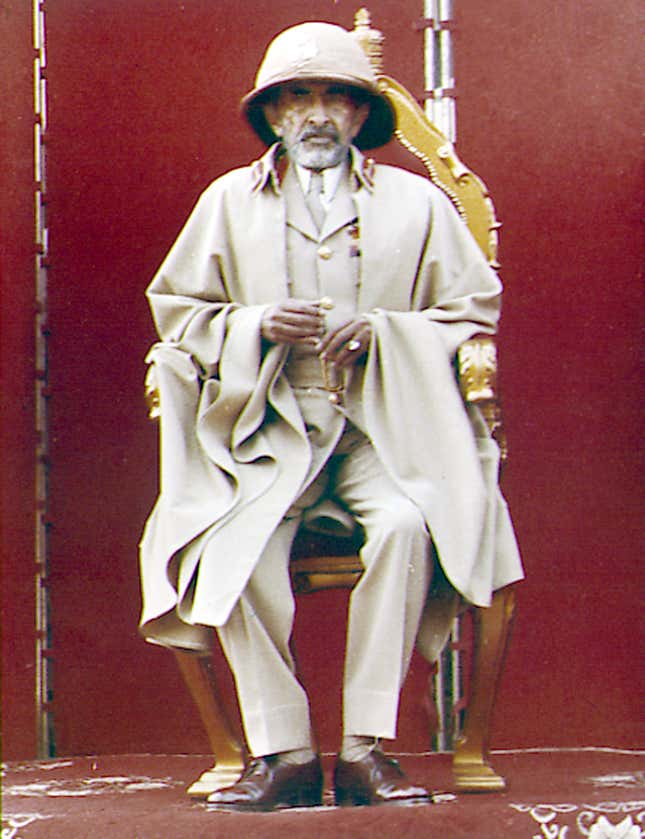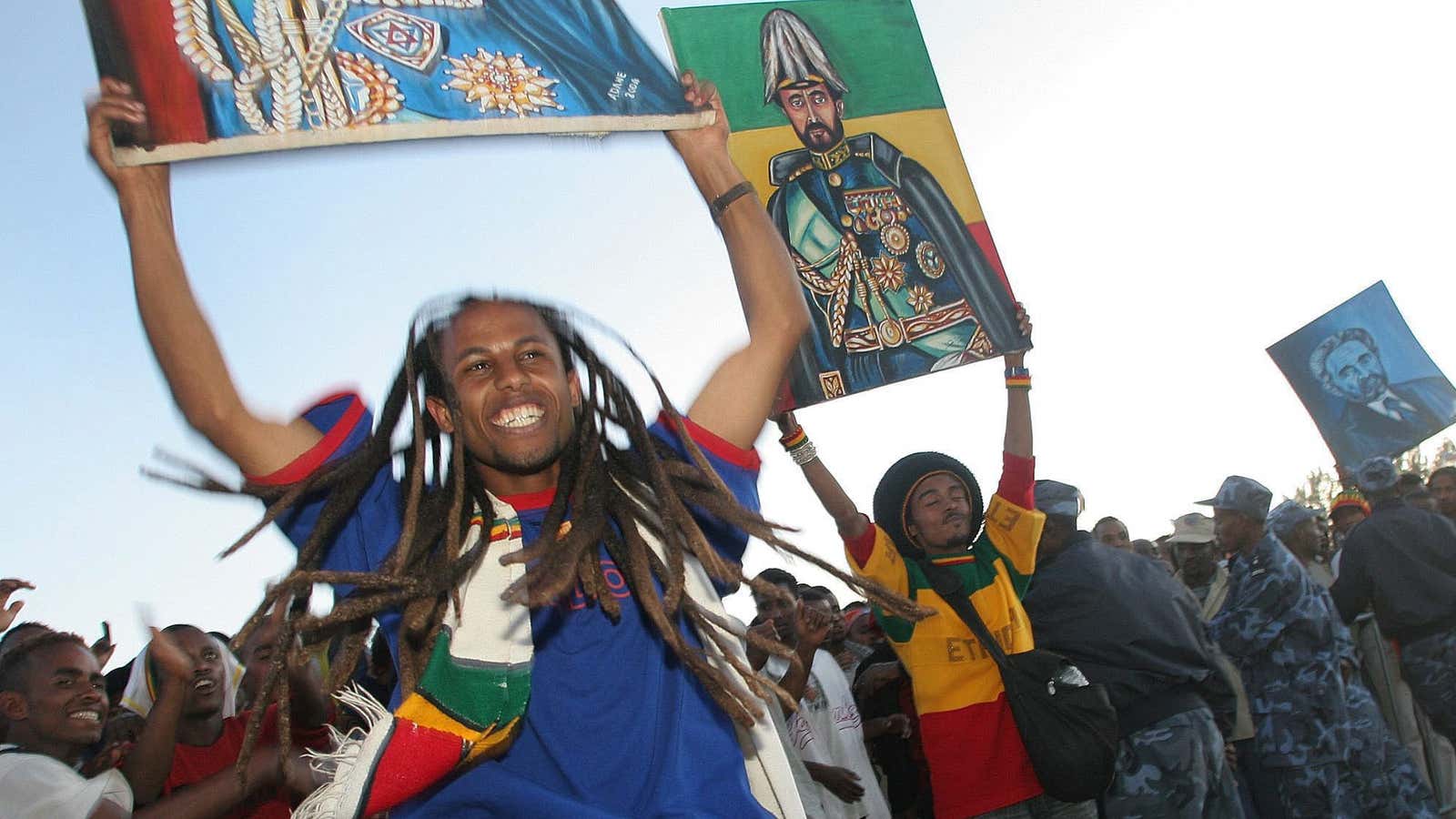Ethiopia’s government has announced it will issue identity cards to members of the Rastafarian community, a religious group that has long been seen as stateless in the horn of Africa nation. The foreign ministry said that the ID cards will grant Rastafarians residency and most legal rights in the country, but will still not make them citizens, AFP reports.
Estimates of the number of Rastafarians in Ethiopia range from hundreds to 1,000, and they reside mostly in the capital Addis Ababa or in Shashamane, a town 250 kilometers (155 miles) south of the capital. Adherents of the religion mostly migrated from the Caribbean in the 1950s, after Ethiopia’s former emperor Haile Selassie—who was seen as a messiah by Rastafarians—bequeathed hundreds of hectares of land to them.
Rastafarianism originated in Jamaica and gained momentum around 1930 when Haile Selassie came to power in Ethiopia. Members of the religious movement believe that blacks are the chosen people, though many were displaced, abused, or marginalized by colonialism and slavery. They wear dreadlocks and smoke cannabis for ritualistic purposes.
Some link the origin of the religion to Marcus Garvey, a Jamaican activist whose philosophy of black self-determination influenced leaders from Malcolm X to Nelson Mandela. Garvey, who was a proponent of black nationalism and pan-Africanism, once said, “Look to Africa when a black king shall be crowned, for the day of deliverance is near.” After news of Haile Selassie’s coronation reached Jamaica, members of the community began an exodus to Ethiopia, believing him to be a savior and God incarnate.
But while Rastafarians believe that Haile Selassie was the Jah—or God incarnate—the Ethiopian emperor didn’t himself intentionally propagate or encourage this divine status. Arriving in Kingston in a 1966 trip to Jamaica, he was overwhelmed by the ecstatic crowds, who jostled to see the African king.

“We are overjoyed,” Ras King, a member of the Rastafarian community who first came to Ethiopia in 1982, told Reuters of the government’s decision. “We are extremely happy because this has fulfilled our confidence in our forefathers’ vision for a united Africa and black people from the West. As usual, Ethiopia has led the way and set the example for the rest of the continent in recognizing the Rastafarian movement.”
Adherents of Rastafarianism live across Africa, from South Africa to Ivory Coast in the west and Tanzania and Kenya in the east. Reggae, and especially the music of Bob Marley and the Wailers, which introduced Rastafarian culture to much of the world, is also huge on the continent.
In Ethiopia, the recognition of the Rastafarians comes at a tense time, when political and economic protests against the government have folded into a battle over land, language, demography, and ethnicity.
Members of the Oromos and Amhara community have been protesting against the Tigray-dominated government, which led to the government instituting a state of emergency. The Tigray, who make up only 6% of the country’s over-100-million population, have over the years enjoyed disproportionate influence and representation in government.
